Our latest Research Café hosted by Pro Vice-Chancellor Prof Chris Turney had a focus on social innovation in construction with two inspiring presentations by Distinguished Professor Martin Loosemore and Chancellor’s Indigenous Research Fellow Dr Allan Teale, both from the UTS Faculty of Design, Architecture and Building. After that, A/Prof John Rees, Director of Research and Training at the Graduate Research School, discussed graduate research development at UTS.
Transforming systems with collaborative research
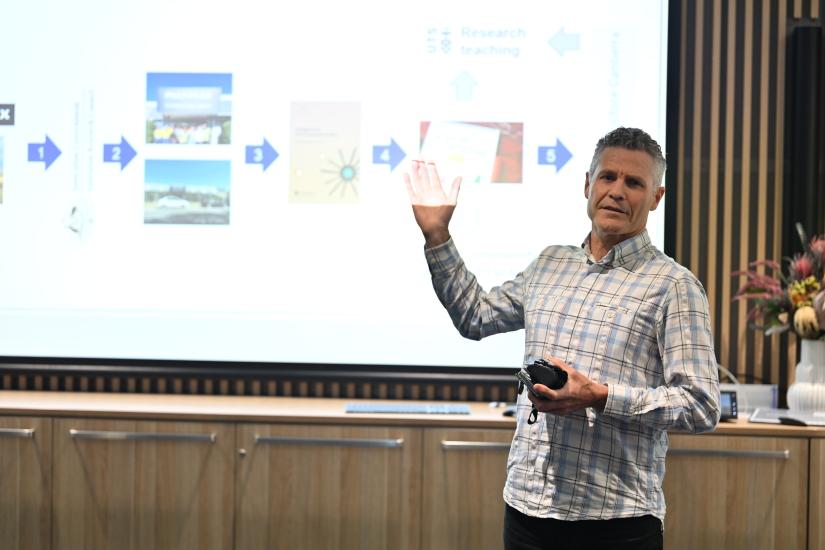
Caption
Distinguished Professor Martin Loosemore speaking at Research Cafe
With achievements recognised by being awarded the UTS Medal for Research Impact earlier this year, Martin has had much success with Australian Research Council (ARC) grants, managing more than $12 million in competitive research projects.
He began his career in construction as a Quantity Surveyor before entering academia, and has been a longstanding advocate for helping companies employ people from diverse backgrounds, from Indigenous and refugees to migrants, people with disability and various disadvantaged groups.
Hundreds of people through this program have actually managed to get sustainable jobs. And the social enterprise continues to grow, while leading to many other initiatives.
Martin and colleagues began developing workplace entry programs for the construction industry, eventually founding a successful social enterprise fifteen years ago that specialises in securing meaningful jobs and training for people facing disadvantage.
“Hundreds of people through this program have actually managed to get sustainable jobs. And the social enterprise continues to grow, while leading to many other initiatives,” he said.
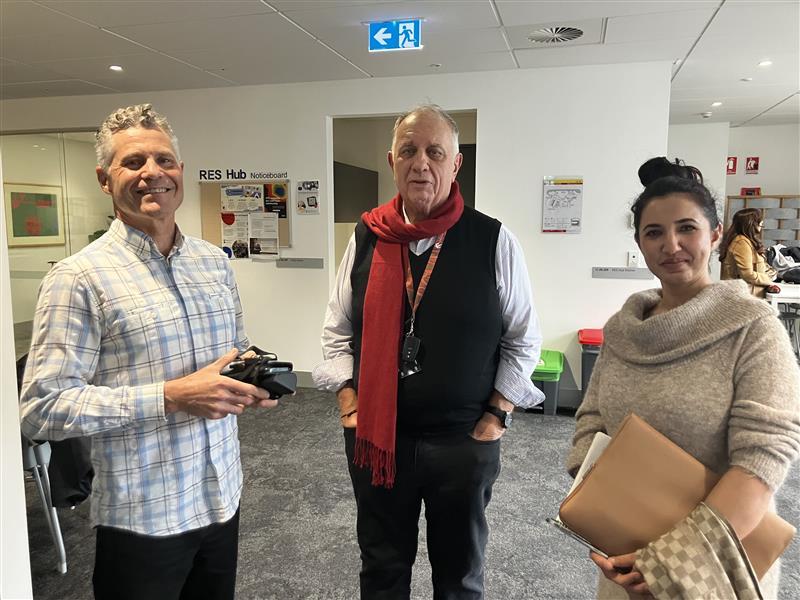
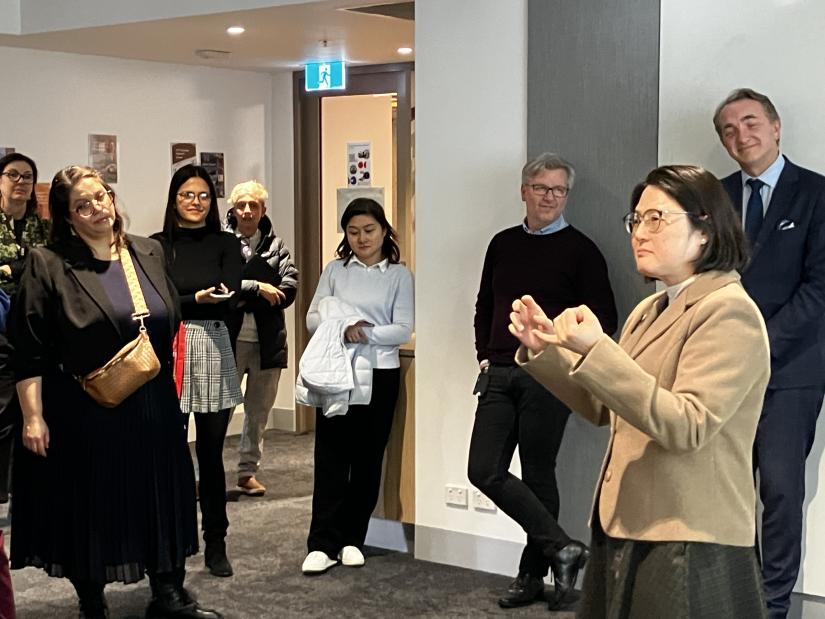
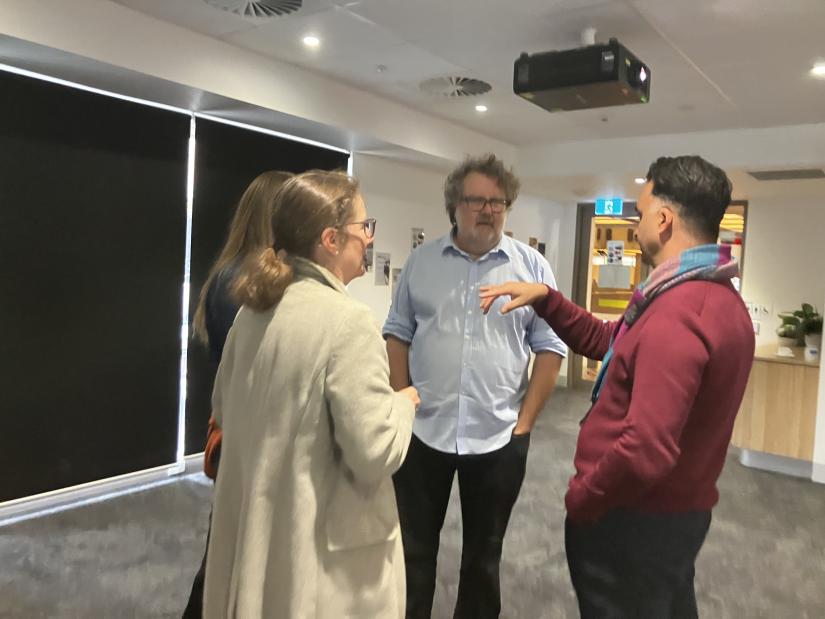
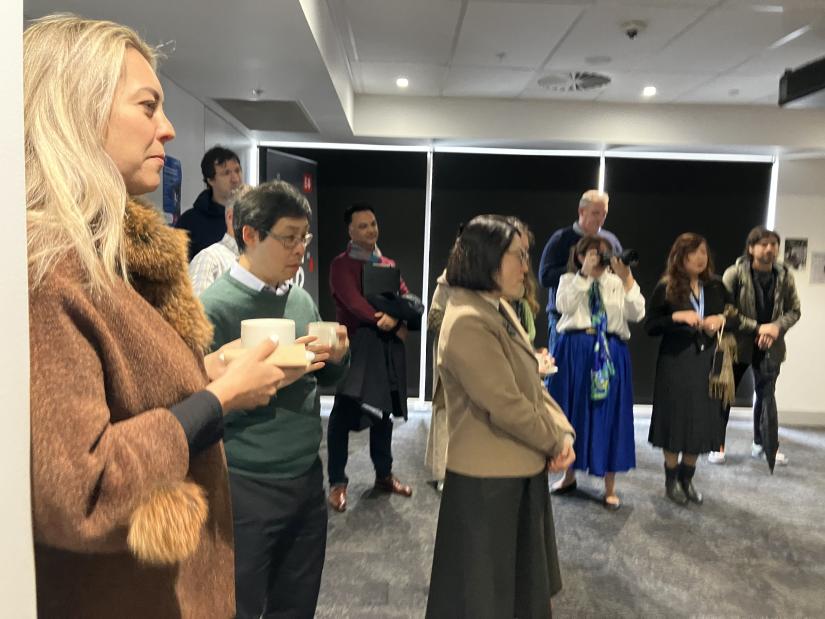
“We've established a community practice at UTS which has around 150 people from across government, big government clients, the industry, not for profits, various intermediaries and academics. We share information about social procurement to people around the world.”
“We've also just tended on a big project with the ACT government with about a million and a half dollars to upscale the social enterprise. This social activity feeds back into my research and teaching because all the connections I make through the social enterprise and working with companies provides me with research contacts. I also invite people to come and talk to our students.”
A masterplan for affordable and sustainable housing
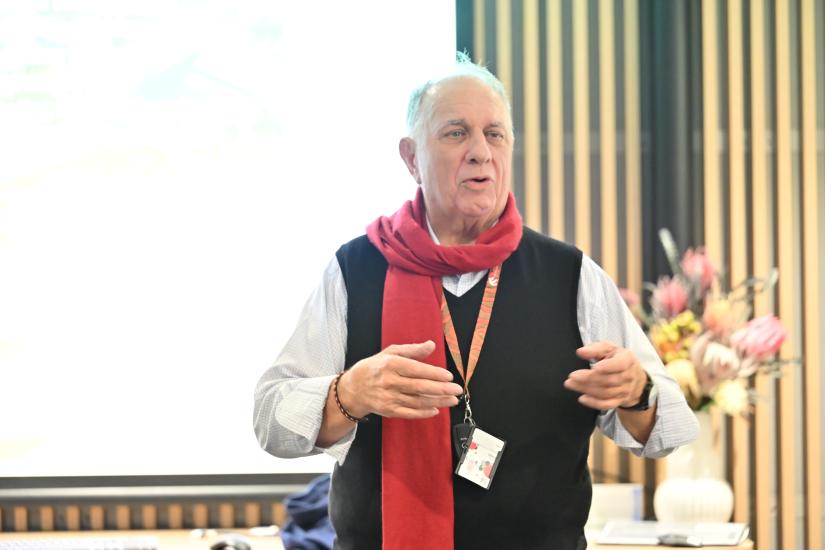
UTS Chancellor’s Indigenous Research Fellow Dr Allan Teale believes there is a better way to provide housing for people that are missing out.
“As part of my Indigenous Research Fellowship, I am developing a housing master plan, working closely with communities and interested businesses such as TransGrid and the National Australia Bank,” Allan said. “To make good research outcomes, you've got to connect to corporates - not once you've got an idea, but at the very beginning of your project.”
The collaborative project includes a large scale, solar development, schools, a retirement village and community housing, all built on sustainable models that are chosen by community members.
“We're talking about self-determination,” Allan said, reflecting on a meeting he had during a Churchill Fellowship with the grand chief of the Mohawk Nation.
“For 45 years the Mohawk Nation has been co-designing policies about how to run villages and how to incorporate their structure of language and histories back into their people,” Allan said. “Today, 92% of the people in that community either own a home or are buying a home.”
“We want to make better outcomes for everyone. We'll have a better Australia. So while this project is Indigenous, it's also for marginalised people. We're aiming to give these people housing, but it'll bring intergenerational wealth to those people as well.”
Allan anticipates that all the collaborative partnerships will also lead to research collaborations.
We want to make better outcomes for everyone. We'll have a better Australia. So while this project is Indigenous, it's also for marginalised people. We're aiming to give these people housing, but it'll bring intergenerational wealth to those people as well.
“We could have a research centre there looking at solar energy and the differences that can be achieved from disadvantaged communities having access to modern housing. What might be the changes in mental health going forward as a result?”
As researchers, Allan said you've got to get outside your box and make those connections from when you get the initial idea, not when the idea is developed.
“Then it's nearly too late, because it doesn't happen in five minutes.”
Allan hopes that the co-designed master plan resulting from this project will be a portable concept that can be taken to different communities.
"They'll have their input of how they want to see the design done. It will not be us telling them - a colonial approach to telling you how you will live. They're going to design what they want."
Making a difference through graduate research
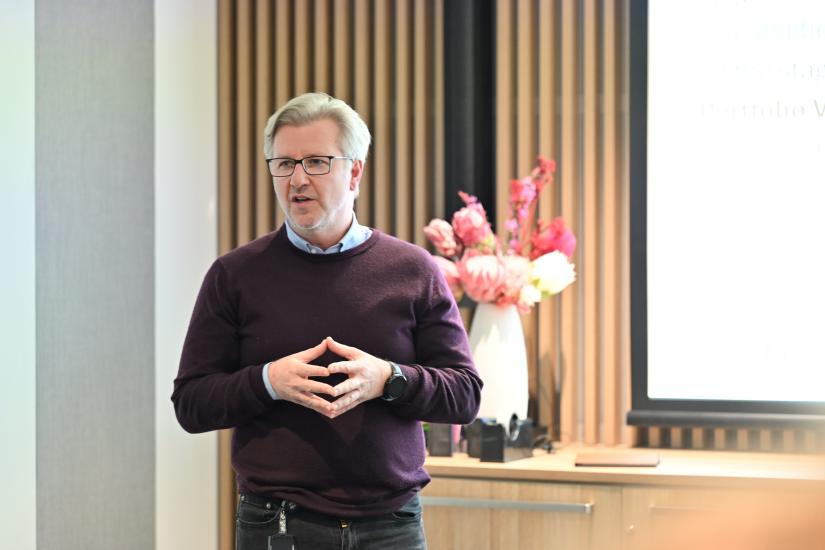
A/Prof John Rees concluded the session by providing an overview of the researcher training opportunities at the UTS Graduate Research School (GRS). With around 2300 PhD research students at UTS sitting in diverse schools and research institutes, John spoke of the importance of GRS taking into account their different training needs.
“Our design thinking approach considers how we can ensure that all of those candidates across all of our different spaces and places at UTS can fit into an overarching training model,” he explained.
“We start with the Graduate Research Education Framework, thinking about the intersection between the skills, the capabilities and what it means to be at UTS.”
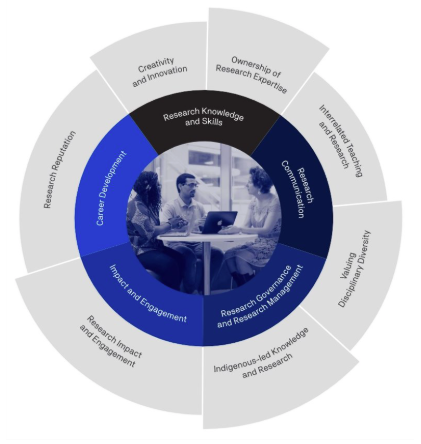
“Our candidates are here to complete a research degree and build the capabilities and requirements needed to be an impactful academic,” said John.
“Our capability framework is one of the driving quality assurance measures and it's something we're very committed to, strengthening our partnership with faculties and institutes and thinking about how candidates that progress through stage assessments can be mapped and measured.”
The GRS works with supervisors along the way to ensure that they too are adopting best practice approaches. And taking a portfolio view, the GRS training model also focuses on graduate research experience in the context of lifelong professional development.
“So it's not just about completing the project. You're not just here to get a PhD. You're here to make a difference aligned to the value propositions of the university itself. You're here to be a professional success, measured against all of those indices on what quality and impact and knowledge translation would mean for us across various disciplines,” John said, adding that the UTS PhD suite taps into the motivations for why you would want to do your PhD.
It's about making a real difference in the world. It's about listening to our PhD students and partners: their needs today and in the future.
“Do you want to be an entrepreneur? Do you want to have high social impact in what you're doing? Do you want to make a difference on various justice measures that can be imported into a larger communal experience coming out of your research. How does the portfolio view of your HDR training elevate that aspiration?”
Chris added his reflections to the GRS’ co-designed approach to crafting the PhD experience at UTS.
“It's about making a real difference in the world. It's about listening to our PhD students and partners: their needs today and in the future,” he said. “Meeting the needs of students, from research support all the way through to impact, and underpinned by wellbeing. That's what we stand for as a research community. And together as a community, we empower people to be the best they can be, and deliver the change in the communities in which we live and work.”
Learn more about Research Cafe and access slides from past presentations.
Email REShub@uts.edu.au to receive the calendar invitation.